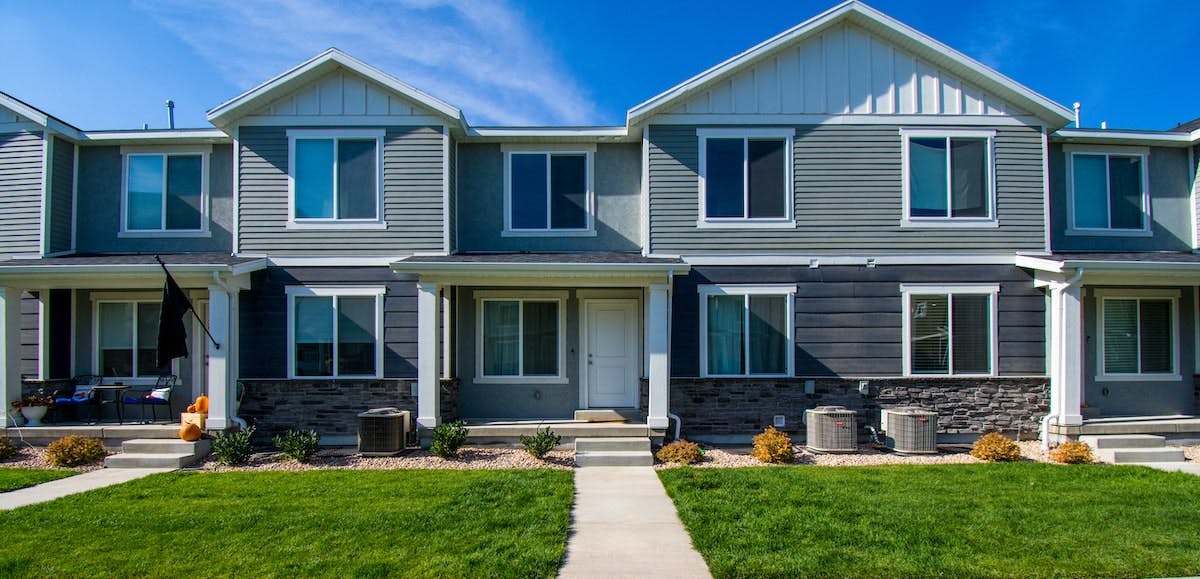Property Management
California
Legal & Regulatory
How Much Rent is Too Much? A Homeowner’s Guide To Rental Increases in Rent-Controlled Cities
Last Updated Jun 26, 2024


Rent increases can be a touchy subject for homeowners and residents. With many homeowner expenses rising such as insurance and maintenance, it’s an important way to cover your cash flow.
But not all rent increases are legal in every city or state. If you’re in a rent controlled state, you may have to check inflation rates to see how much you can ask residents to pay.
As soon as rent control is mentioned, debate rages. Rather than going into the pros and cons of rent stabilization, we’ll take a look at what you can and can’t do as a landlord in states and major cities within the Belong network including California, Washington state, Texas and Florida.
Note: The information in this article was collected in June 2024 and is subject to change. Local ordinances vary between cities, please check with your local municipality to check the latest rules before initiating any rent increases. If you need help with pricing, Belong can help create accurate pricing that works toward your financial goals.
Which states have rent control laws in 2024?
At a state level, Oregon and California are the only two states with rent control guidelines in place. Rent control policies also exist within the District of Columbia, New York, New Jersey, Maine, Maryland and Minnesota, but don’t apply statewide.
More commonly, local ordinances are what caps or restricts rent increases. Even in states with rent stabilization, rules will vary between counties. It’s important to check with your local city before increasing rents, especially when there are new measures voted on every year.
How much can a landlord increase rent in California?
Local rates of inflation or the ‘Consumer Price Index’ (CPI) play a big role in determining acceptable rent increases for rent controlled units in California.
As of June 2024, state law caps annual rent increases to whichever is lower of these two calculations:
- 5% of the current rent + CPI or
- 10% of the current rent
CPI changes for rent increases in 2024 will come into effect from August 1, 2024 to July 31, 2025. That means if you are looking to increase rent in California, you will need to check your local rates of inflation for capped amounts. Here are some examples of CPI calculations for Southern California:
- San Diego: 3.5% (+5% = 8.5% increase in rent for 2024)
- Riverside: 4.2% (+5% = 9.2% increase in rent for 2024)
- Imperial County: 3.8% (+5% = 8.8% increase in rent for 2024)
The 10% cap exists to limit increases when inflation is high. For example in 2022, San Diego’s inflation rate was 8.2%, making the CPI + 5% rate above 13%. In this year the lower 10% cap applied. Legal website Nolo lists Californian cities and their rent control measures to find your CPI amounts for 2024.
The above calculations don’t apply to all rental properties, including most single-family homes and units built before a certain date. But this may not be the case next year. In November 2024, California will be voting on rent control measures to repeal the existing rulings. This would allow cities and counties to implement their own ordinances and change the exemptions. Although if you think you’ve heard this all before, it’s because this will be the third time this proposition has been on the ballot after being defeated twice.
Related: California Rental Laws Are Changing in 2024: What Landlords Need To Know
How much can a landlord increase rent in the SF Bay Area?
In San Francisco, the rent increase percentages are calculated at 60% of the increase in inflation (CPI) in the Bay area. For rent-controlled units in San Francisco, the annual allowable rent increase between March 1 2024 - February 28, 2025 is 1.7%
Cross the bridge to the City of Oakland and allowable annual rent increases are 60% of the increase in inflation or 3% – whichever is lower. As of August 2024, rent-controlled units in Oakland will be allowed to increase rent by 2.3%. You may also defer increases and ‘bank’ them for up to 10 years. See the City of Oakland website for more information and how these restrictions may apply to a rent-controlled rental.
How much can a landlord increase rent in Sacramento?
If your rental home is rent-controlled, Sacramento follows the state of California ruling, 5% of the current rent + CPI (local rate of inflation), capped at 10%. As of July 2024, the maximum rent increase is 8.8% unless you raise a petition to justify a larger increase. According to the City of Sacramento website, “landlords who increase the rent above the annual rent adjustment maximum and/or more than once every 12 months are subject to administrative penalties up to $25,000.”
How much can a landlord increase rent in Washington state?
Washington doesn’t have rent control laws, so you can apply any rent increase. The minimum notice period range forms 60 - 180 days and varies between cities. The City of Spokane passed a ruling to increase notice periods to 120 days for increases under 3% and 180 days for increases above 3%. This applies to both long-term and periodic leases and came into effect in June 2024.
If you do increase the rent by more than 10% within 12 months, some cities and counties may require you to pay relocation assistance if your residents need to move out as a result of the increase.
Related: 5 New Laws Washington State Landlords Should Be Prepared For in 2024
How much can a landlord increase rent in Seattle?
Seattle doesn’t restrict the amount of rental increases, but there are caveats. There are rules around increasing housing costs, which includes rent, parking, storage and any other periodic fees your residents pay you as the homeowner.
The full list can be found on the City of Seattle website, but includes:
- Homeowners can only increase housing costs when a lease is up for renewal or the rental agreement is month-to-month
- You must provide residents with 180 days written notice of any increase in housing costs such as rent or fees
- If you increase the rent by 10% or more within 12 months, you could be required to pay financial or relocation assistance (tenants must meet certain conditions to apply)
How much can a landlord increase rent in Texas?
There are no restrictions on rent increases in the state of Texas. If you’re on a fixed-term lease, you can legally raise the rent when it’s time for lease renewal. If the agreement is periodic, you can raise the rent any time provided you follow the notice period for your local area.
Last year, House Bill 2127 came into effect to block local jurisdictions from introducing local ordinances without state approval, though this is in litigation with Houston, San Antonio and El Paso suing to block the legislation.
Related: 5 Tips for Rental Success in the Lone Star State
How much can a landlord increase rent in Florida?
There are no restrictions on rent increases in the state of Florida and the local counties regulate notice required for increase. For example, until recently Miami-Dade County needed “fair notice to the tenant” in writing, but that was updated to a minimum of 60 days.
House Bill 31 was filed last year which proposed that landlords not increase rent by more than 30% over a 12-month period for continuing residents as of July 2024, but this bill was not voted on by the committee to pass into law.
Related: 3 Legal Changes and Bills Florida Landlords Should Be Prepared For in 2024
For any information on raising rent on your Belong-managed home in any areas outside of these states including Georgia, North Carolina, South Carolina and Utah, please contact your support team.
Is my rental exempt from rent control laws?
Most rent control laws apply to apartments rather than single-family homes. If you own a single-family home or duplex as an individual, it’s likely that you will be exempt from rent control laws (check with your local municipality to confirm). If you manage your rental as an LLC or as part of a corporation or real estate investment trust (REIT), exemptions won’t apply.
There are also common exemptions such as for newer housing (built within the last 10 - 15 years) or for those who are subsidized under government-sponsored programs.
If you are exempt from rent caps or any other limitations such as just cause evictions, you will need to include this information in writing to your resident.
If you enlist professional help from real estate experts like Belong or a good local property management company, they will guide you through the process of increasing your rent lawfully.
Let Belong optimize your rental pricing
Instead of going it alone and navigating through a maze of local legislation, let Belong optimize your cash flow by listing at the right price to achieve your financial goals.
Belong is a proptech company on a mission to fix long-term renting by focusing on modern innovation and services that support everyone. We’ll partner with you to get your home the best price, guarantee your rent, and care for it the way you would. Never worry about bad residents, late rent, cost blowouts, or 2am phone calls ever again.
See why thousands of US homeowners are ditching outdated Property Management in San Francisco, Austin, San Diego, Los Angeles, Tampa, Jacksonville, Orlando and more.
Disclaimer: We don’t enjoy using the word ‘landlord’. We prefer to refer to members in our network as homeowners and residents, not landlords and tenants, since we’re on a mission to upend and redefine the traditional landlord-tenant relationship. That said, sometimes the words tenant and landlord need to be used to provide clarity on legislation — so in this article we use both. This article provides a guide for homeowners of residential property for rent in the US, but should not replace financial or legal advice.
About The Author
Melanie Kershaw
Mel Kershaw is a Content Lead at Belong. With an extensive background working with technology companies including Eventbrite and Yelp, she’s always looking for ways to create educational and informative articles that simplifies tech and solves problems for her audience.




